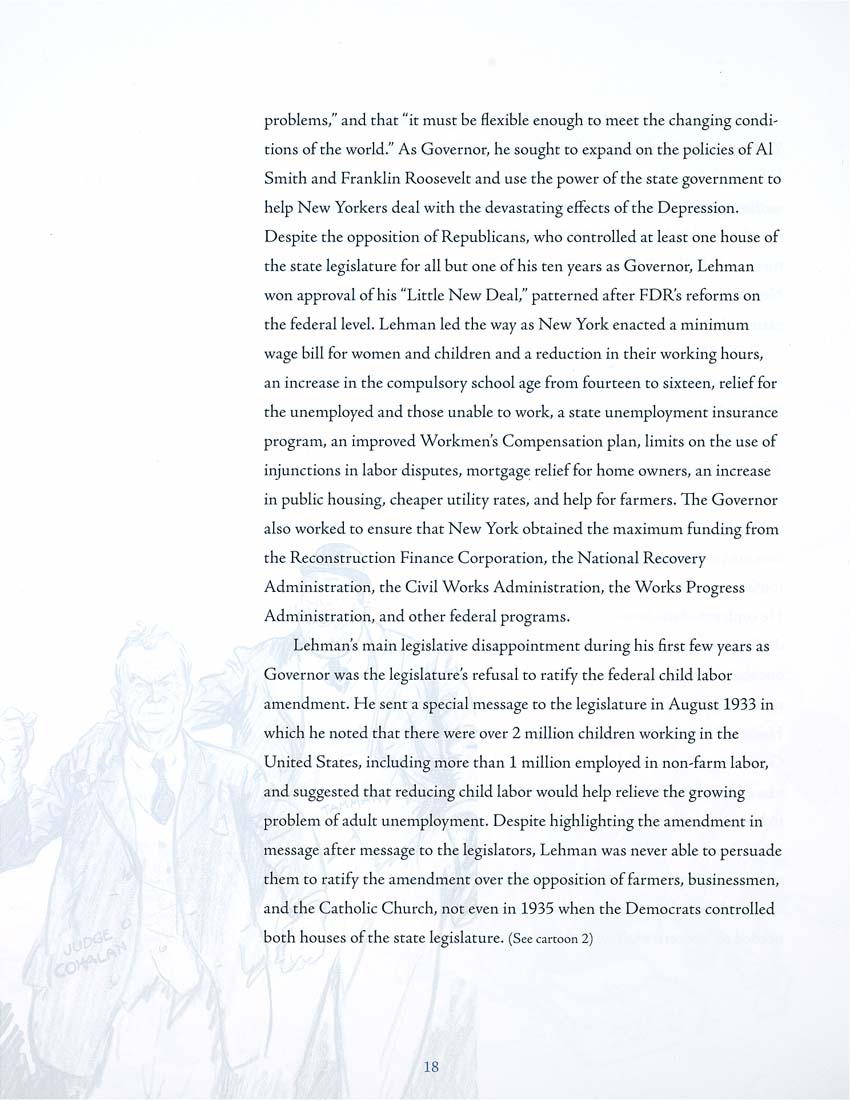problems," and that "it must be flexible enough to meet the changing condi¬
tions of the world." As Governor, he sought to expand on the policies of Al
Smith and Franklin Roosevelt and use the power of the state government to
help New Yorkers deal with the devastating effects of the Depression.
Despite the opposition of Republicans, who controlled at least one house of
the state legislature for all but one of his ten years as Governor, Lehman
won approval of his "Little New Deal," patterned after FDR's reforms on
the federal level. Lehman led the way as New York enacted a minimum
wage bill for women and children and a reduction in their working hours,
an increase in the compulsory school age from fourteen to sixteen, relief for
the unemployed and those unable to work, a state unemployment insurance
program, an improved Workmen's Compensation plan, limits on the use of
injunctions in labor disputes, mortgage relief for home owners, an increase
in public housing, cheaper utility rates, and help for farmers. The Governor
also worked to ensure that New York obtained the maximum funding from
the Reconstruction Finance Corporation, the National Recovery
Administration, the Civil Works Administration, the Works Progress
Administration, and other federal programs.
/' V ^, Lehman's main legislative disappointment during his first few years as
M .- . ' ^ - Governor was the legislature's refusal to ratify the federal child labor
amendment. He sent a special message to the legislature in August 1933 in
which he noted that there were over 2 million children working in the
United States, including more than 1 million employed in non-farm labor,
and suggested that reducing child labor would help relieve the growing
problem of adult unemployment. Despite highlighting the amendment in
message after message to the legislators, Lehman was never able to persuade
them to ratify the amendment over the opposition of farmers, businessmen,
and the Catholic Church, not even in 1935 when the Democrats controlled
both houses of the state legislature. (See cartoon 2)
|








